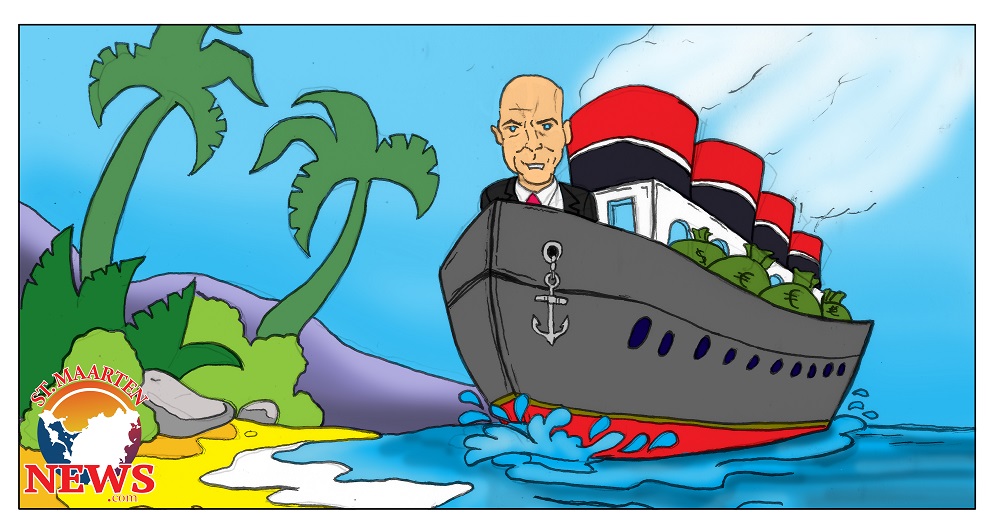Knops: No liquidity support without agreement about conditions

THE HAGUE – The third tranche of liquidity support will only become available after St. Maarten has met all the conditions attached to the second tranche and after there is a clear political agreement about the conditions attached to the third tranche. “Liquidity support will not become available before that,” State Secretary Drs. Raymond Knops (Kingdom Relations) writes in a 30-page document containing answers to questions from Dutch parliamentarians.
Knops also made clear that emergency assistance will continue with or without the government’s agreement to the conditions for liquidity support. “The Netherlands will not abandon the most vulnerable citizens.”
The state secretary wrote that more than 10,000 families are receiving food-packages or food vouchers. According to the latest numbers released by the local bureau of statistics, St. Maarten has around 14,000 households; this would mean that more than 71 percent of these households depend on Dutch emergency assistance to have at least something to eat every day.
The plan to establish the Caribbean Reform Entity (CRE) triggered quite some questions from Dutch parliamentarians. Knops points out in his answers that the CRE is paid for by Dutch taxpayers and that the money that is put at the CRE’s disposal to execute projects also comes from Dutch citizens. This is the reason why Knops wants to establish the CRE as a Dutch independent administrative body (zelfstandig bestuursorgaan). Its members will be appointed by the Dutch minister of Home Affairs and St. Maarten will have no influence on the appointment of experts.
Related: Will the Caribbean Reform Entity become a reality?
Elsewhere in his answers, Knops states that the parliament of St. Maarten does have a role to play in the process of establishing the CRE and in the implementation of reform that requires adjustments to existing legislation. But the parliament will not get a role in supervising the entity. That remains the prerogative of the Dutch minister of Home Affairs.
The document also gives a detailed overview of St. Maarten’s plummeting tax revenue in 2020. In January, the country still collected 38.4 million guilders, in February 28.7 million and in March 37.5 million. But in April the effect of the COVID-19 crisis became painfully visible: tax revenue dropped to just 9.4 million.
Knops confirmed that the establishment of the consensus kingdom law Caribbean Reform Entity requires the approval of all four kingdom countries. If a country does not approve, the law will not apply, though the consequence will obviously be that the kingdom will not provide any liquidity support.
Members of parliament also expressed concerns about the effect of salary cuts for employees in the public sector. Knops said that employees should not end up earning less that the social minimum. He pointed out that the 12.5 percent cut on the personnel cost in the public sector does not have to be evenly divided. “St. Maarten is free to put a heavier burden on the higher salary scales.”
The state secretary also emphasized the urgent need for reform: “Without it, the economy will return to the low growth of the past decades and it is realistic to assume that this growth will even be lower than that. This is due to higher debt, higher unemployment and a diminished demand for international tourism.”
Knops wrote that the CRE is primarily responsible for the distribution of available funds and that it will do this as much as possible in consultation with government organizations. “If those organization do not, or not sufficiently, cooperate with the execution of agreed upon obligations then the CRE is authorized to suspend or terminate its support. In case of structural failure to cooperate, the Dutch Council of Ministers can decide to stop providing funding altogether.”
Inevitably, parliamentarians also asked questions about the World Bank Trust Fund and the execution of post-Irma reconstruction projects. “The World Bank and the government of St. Maarten have a leading role in executing and implementing reconstruction projects. The government of St. Maarten determines the content of reconstruction activities by submitting and executing projects.”
Knops regrets the slow execution of these projects. “The most important cause of these delays are the lack of capacity at the government and the National Recovery Program Bureau, the slow decision making process, the lack of data and expertise and political instability.” Therefore, Knops says answering a related question, the process requires intensive support and monitoring.


























